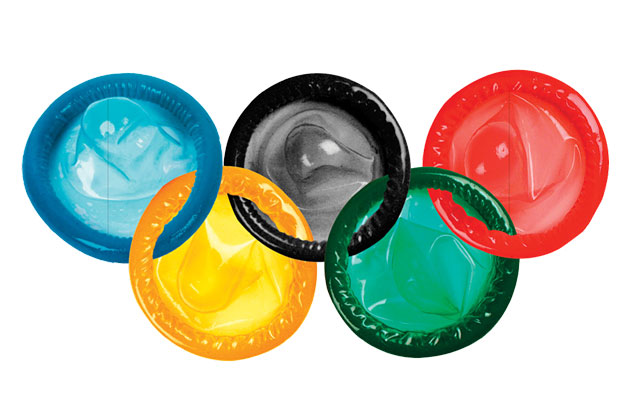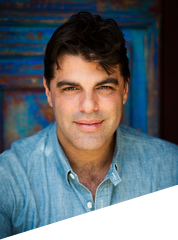The other night as the Winter Olympics drew to a close, I watched the final of the four-man bobsled event. By the time it was all over, the team that came first had completed the course 1.2 seconds faster than the team that came tenth.
Let me repeat, in case you were not paying attention: 1.2 seconds faster. Not as compared to the team that came second, or third, or fourth, but 1.2 seconds faster than the tenth placed team. Or put another way, after a lifetime of training and sacrifice all that differentiated the Gold medal winners from the tenth placed nobodies was, quite literally, the blink of an eye.
This hardly seemed fair to me, although the bob-sled guys didn’t appear to mind the injustice of it all. But as I watched them hurtle down the ice, their fate depending on a matter of mere milliseconds, I couldn’t help to think of how cruel professional sport can be. Where success or failure can come down to teensy-tiny minute differences that, in any other context, would not make the slightest difference to anyone or anything.
And when you consider that more than 3,000 athletes participated in the Sochi Games, but only 295 medals were awarded in total, a lot of sportspeople may have left Russia feeling pretty low.
Or did they? Perhaps instead of getting down they actually got “up”, and found something to lift their spirits once the medals had been handed out to the victorious few.
—-
Twenty years ago, in an especially boring law-school class, I was seated for a semester next to a Russian-Australian guy who was a swimmer, and a phenomenally good swimmer, at that. He had competed for the university and the state and the nation. He had also represented Australia at the Barcelona Olympic Games in 1992, before hanging up his budgie-smugglers and commencing legal studies.
This made him the first proper athlete I had ever met, and so to me he seemed like some sort of superhuman, who had decided to descend from the heavens and study torts and contracts alongside us mere mortals. With blonde hair, blue-eyes and a chiselled swimmer’s body he certainly looked the part of the Nordic Water God. A fact not overlooked by many girls on campus, who fawned over him like a gaggle of star-struck swim groupies.
One day after class we got chatting about his Olympic experience. He explained to me that even though he had swum at the Barcelona Games, he had done so in the full knowledge that he never had a chance of placing in the Top Ten, much less winning a medal. A function of the “few extra seconds” it took him to swim the laps, as compared to the very best swimmers in the world. He was, in his own words, there to make up the numbers in the team.
I remember this had struck me as being kind of odd, and I asked him incredulously (and perhaps rather insensitively): “You mean you gave up years of your life, and spent so many hours training to get to the Olympics, even though you knew you could never win?”
To which he replied: “Yes, but at least I got to go to the Olympics, which not many people get to do. And anyway, the sex afterwards was completely unbelievable”.
What?
It turns out (if my Olympian class-mate was to be believed) that the vast majority of athletes know they have no prospect of winning a medal, and so for them the Olympics are all about the pride of representing their country; the sense of achievement in knowing they have done the very best they could; and the massive orgy that is unleashed in the Olympic village when the competition is over.
“Think of it like this”, he told me, “an average Olympian is young and attractive and in great physical shape. And single. They’ve spent years training, watching what they eat, going to bed early, skipping parties and not drinking or smoking or clubbing or doing anything else that other people their age take for granted. And then they are let loose, for two weeks, with thousands of other people exactly like them. Once they finish their event they are, for the first time in years, allowed to do whatever they want, with no parents and coaches to worry about, and no 6.00 a.m. training session to wake up for the next day. So everyone in the Olympic village goes absolutely crazy. From the moment I finished my last race, the Olympic Games in Barcelona became the biggest fuck-fest imaginable”.
Um, well, OK. Perfectly understandable when explained that way, I guess. Although even this is understating it a bit, because it turns out that the sheer scale of the debauchery that goes on behind the scenes at the Olympics is mind-blowing.
So for example in Seoul, in 1988, there were apparently so many condoms found on the roofs of the buildings in the Olympic village that organisers actually banned outdoor sex (presumably the more conventional indoor variety was still permitted). Roll forward to today, and the situation is much the same. The 2012 London Games distributed over 150,000 condoms to the athletes. In Sochi this number was less – reported at 100,000 – but then again, there are far fewer Winter Olympians than Summer ones.
American snowboarder Alex Deibold summed it up quite well when he said in a recent interview: “They do provide free condoms, which I think is a really smart move on their part … We’re good-looking people all hanging out together and stuff like that is bound to happen.” And when you do the math, you quickly figure out that the IOC is handing out enough condoms for every male athlete to “compete” about twenty times. In fifteen days. That is a heck of a lot of competing.
Bottom line: at the world’s premier sporting event it seems that what you see on television is not the only physical activity taking place.
—
These recent Olympic Games in Sochi were, however, the first time that social media was an integral part of the Games, and of the lives of most athletes there. Platforms like Facebook, Instagram, Tumblr and Snapchat sent the Olympic sex-factor right off the charts, like never before.
Leading the charge were the coolest athletes of these Olympics, being the curlers (see My Olympic Campaign and Olympic Dreaming for more on my newfound love of curling). Curlers nowadays are typically young, fit and athletic, and evidently not at all shy. Hence online photos of the captain of the Russian women’s curling team, posed in lingerie and high-heels, and holding a curling broom (according to one reputable sports magazine, officially making her the hottest athlete at the Games). Along with similarly raunchy photos of her teammates, and of some equally shapely curlers from the other teams as well (which according to the same reputable sports magazine officially made curling the “hottest” sport at the Games….).
This sort of thing was not limited to just the curlers, though. It seems that posing semi-nude while holding sporting apparatus to cover up your private bits was virtually part of the qualification criteria for these Olympics. Like the photo of an extremely attractive Russian speed-skater in a slinky white evening dress. Except that it also happened to be wet, and hence …, how shall I put it …, strategically transparent. Presumably this is what happens when you go sliding about on the ice in your formal wear. In any case the picture went viral, and was one of the most downloaded photos of the entire Games.
The internet is awash with many more similar snaps, of dozens of young and fit female athletes in lingerie, or half-naked, or more. With no regard to nationality or sport of choice either, so the list includes Russian ice-hockey players and figure-skaters, American and Australian and Austrian snowboarders, Swiss lugers and Canadian skaters and Spanish sliders. Even Lebanon’s sole downhill ski contestant saw fit to pose suggestively at the top of a ski-run, topless, and holding her skis upright to cover her assets.
Now before you get all indignant about this being an outrageously sexist state of affairs, you should know that an equally massive number of similarly revealing photos are floating about the web of super-buff male athletes, from all over the world, in various states of undress, and showing off their sickeningly toned muscles. I might in particular invite you to consider the calendar put out by the Canadian men’s curling team, showing this squad of hunky and surprisingly fit-looking male curlers, some with ripped chests and obscene six-packs, in an assortment of compromising poses.
Honestly, who knew that curling was such a sexy sport?
—-
And then there is Tinder, a mobile phone app that was such a smash hit at these Olympics some commentators have already labelled Sochi as The Tinder Games.
Tinder, for those of you who like me are technologically retarded and still think using iTunes is cutting-edge, is the latest in matchmaking tools. It uses the GPS in your phone to locate single people in your location, and then shows you their photos, one by one. Swiping the photo left means “don’t like”, and then the photo (plus the person in question) is binned forever. Swiping right, however, indicates that you “like” that person, never mind you know nothing about them and have only seen their photo for, oh, about two seconds. If in doing the same thing that person happens to have “liked” you too, hey presto – you are a match! Tinder then lets you swap instant messages, through which you might arrange to meet in person. Or “hook-up”, in the jargon.
In short, Tinder creates a giant pick-up market that is quite brutal and unashamedly shallow, reducing the whole act of dating to a quick glance at a photo followed by a split second decision to swipe left, or to swipe right. Perfect really for those of the Internet Generation, given their increasingly limited attention span and voracious appetite for instant gratification. It is not surprising therefore that Tinder has become massively popular with the under-30 crowd. It was one of the top-ranked new apps of 2013.
Cue the Sochi Games, where, if you recall, 3,000 or so fit, attractive, and sex-starved under-30s were deliberately crammed into a confined space together for two weeks, and then let off the leash. All the tinder you need for Tinder, so to speak, and use of the app amongst Olympic athletes exploded beyond all expectation. Tinder’s CEO told the Wall Street Journal that the app experienced 400 percent day-over-day increases in new users in Sochi during the Games.
Snowboarder Jamie Anderson described it as such: “Tinder in the Olympic village is next level. It’s all athletes! …There are some cuties on there”. One of her team-mates was quoted as saying: “Oh man, Tinder is going mad up there in the athletes’ village”. Gus Kenworthy, a skier, put it this way: “I guess it was the first thing people did when we got to the village – we checked Tinder …. Who you think is hot, see if they do too…”
His team-mate Nick Goepper went one step further, offering a reporter some tips on Tinder strategy: “swipe right all day – got to keep your options open… I’ve gotten [sic] quite a few notifications that say, ‘This person wants to kiss you’.” And once started the Tinder-fuelled mayhem quickly spread well beyond the athletes. “I’ve actually met a lot of interns for NBC and other media who are Tindering athletes”, luger Kate Hansen said in an interview – “this one intern was showing me her matches; they are all athletes”.
Of course those wild and whacky curlers were right in the thick of all this Tinder action. Like Canada’s Ryan Harnden, whose Tinder screenshot was widely circulated. “Love curling”, was how he described himself in the tagline. Although begging the question somewhat as to why the accompanying photo was of him on a boat, shirtless, and flexing his pecs.
Where there is fire there is very often also hot air, and within days of the Games starting a website called Sochi on Tinder was up and running, somehow finding the Tinder screenshots of dozens of athletes on the hook-up trail, and “outing” them. Prompting Time Magazine, a serious magazine determined to approach this serious subject from a serious perspective, to come up with a tried and true method of describing the whole sordid affair. Hence Tinder-Gate was born ….
But the undisputed stars of the Olympic Tinder show – God help us – were the Antipodeans. One Australian skier – “Philpot” as he goes by on Tinder – showed off a ripped six-pack in his bid to attract female suitors. A female team-mate put up a picture of herself topless on a beach flicking her hair back in the water, and alongside that another photo of herself, holding a power tool. Hmmm….. An Australian snowboarder confessed to an interviewer that using Tinder was part of his secret Valentine’s Day plan to woo hearts in Olympic village. One newspaper article describes how for many in the Australian team, Tinder was their primary form of communication while at the Games.
That said, the award for being the most widely reported Tinderist (Tinderite? Tinderer? Tinderina?) at these Winter Games goes to a snowboarder from New Zealand, Rebecca Torr. Even before she arrived in Sochi she had ignited a media firestorm when she announced her plan to use Tinder to hook-up with the Jamaican bob-sled team. There has, however, been no clarification as to whether this actually happened (or whether, perhaps, she switched preference mid-way for those raunchy curlers).
Although to be fair, Rebecca (or @PossumTorr #lolympics as she is sometimes otherwise known) was not amused by all the attention her Tinder-scapades got. Claiming she was joking and not seriously intent on turning the bobsled into a five-person event, she switched to another platform, and tweeted in her own defence: “After my experiences over these past few weeks, I think there is a great great need for a ‘sarcasm’ font.”
—
Is there a point to all this? Well, no, not really.
Other than to say I feel entirely vindicated in my decision to champion curling as being the coolest, sexiest, most underrated sport out there. I am more determined than ever to join a curling team. Look out for me at the next Winter Games.
And also to say that when you read about Facebook or Google acquiring Tinder for five-hundred gazillion squillion dollars, you can say you read about it here first. Tinder set these Olympics alight, making it easier than ever before for athletes from around the world to find each other, connect, and then hook-up in the Olympic village for a bit of après-ski horizontal jogging.
Which I suspect is probably not exactly what Baron de Coubertin had in mind, when he first dreamed up the modern Olympics as a forum for promoting sporting and cultural exchange.









